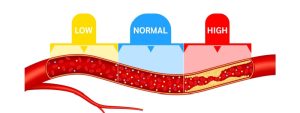Maintaining healthy cholesterol levels is essential for reducing the risk of heart disease and stroke. Maintaining a healthy weight is one of the most effective cholesterol management methods. This blog post will explain the connection between weight management and cholesterol control and offer practical tips for achieving and maintaining a healthy weight.
How Weight Affects Cholesterol
Reduces LDL Cholesterol: Excess weight is associated with higher LDL cholesterol levels. Losing weight can help lower LDL cholesterol levels, reducing the risk of plaque buildup in your arteries.
Increases HDL Cholesterol: Weight loss can also increase HDL cholesterol levels. Higher HDL levels help remove more LDL cholesterol from the blood, which benefits heart health.
Lowers Triglycerides: Triglycerides are another type of fat in your blood that can increase the risk of heart disease. Being overweight often leads to higher triglyceride levels. Weight loss helps lower triglyceride levels, further reducing cardiovascular risk.
Improves Overall Metabolism: Carrying excess weight can disrupt metabolism, leading to higher cholesterol levels. Losing weight can help normalise your metabolism, improving your body’s ability to manage cholesterol.
Strategies for Weight Management
- Healthy Diet: A balanced diet is crucial for weight management and cholesterol control. Focus on:
- Fruits and Vegetables: These are low in calories and high in fibre, which helps reduce LDL cholesterol.
- Whole Grains: Whole grains like oats, barley, and brown rice contain soluble fibre that can help lower cholesterol.
- Lean Proteins: Opt for lean proteins such as chicken, fish, and legumes. Avoid red meats and processed meats, which are high in saturated fats.
- Healthy Fats: Include sources of healthy fats like avocados, nuts, and olive oil in your diet. These fats can help increase HDL cholesterol and lower LDL cholesterol.
- Regular Physical Activity: Exercise is essential for weight loss and cholesterol management. Aim for at least 150 minutes of moderate-intensity aerobic activity per week, such as walking, jogging, or cycling. Incorporate strength training exercises at least twice a week to build muscle, which can help boost metabolism.
- Portion Control: Be mindful of portion sizes to avoid overeating. Eating smaller, more frequent meals can help control hunger and prevent binge eating.
- Stay Hydrated: Drinking plenty of water can help manage weight by keeping you full and reducing the temptation to consume high-calorie beverages.
- Monitor Progress: Track your weight, dietary habits, and physical activity. Regular monitoring can help you stay motivated and adjust your routine.
- Get Support: To receive guidance and support, consider joining a weight loss group or working with a healthcare professional, such as a dietitian or personal trainer.
Benefits of Weight Management Beyond Cholesterol
Managing your weight has numerous health benefits beyond cholesterol control. It can help reduce blood pressure, improve blood sugar levels, reduce the risk of type 2 diabetes, and enhance overall well-being. Achieving and maintaining a healthy weight can also improve energy levels, mood, and quality of life.
Weight management is a key factor in controlling cholesterol levels and reducing the risk of heart disease. You can achieve and maintain a healthy weight by adopting a healthy diet, engaging in regular physical activity, and practising portion control. These lifestyle changes improve cholesterol levels and enhance overall health and well-being. Always consult your healthcare provider before starting any new weight management or exercise program. Taking proactive steps to manage your weight can protect your heart and improve your quality of life.




